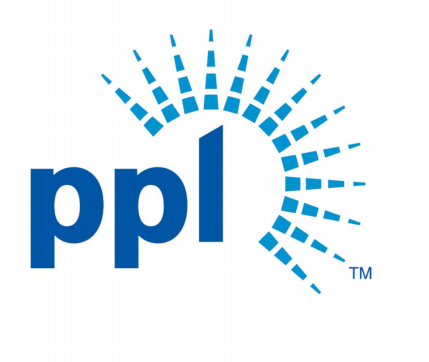Extreme winter temperatures, while not as severe as last year, continue to play a major role in companies’ earnings results and business strategies.
PSEG

While the company cited the strong performances of Public Service Electric & Gas and its generation business PSEG Power, operating earnings only increased slightly from the previous year and revenue dipped slightly. The biggest boon for the company was a $264 million settlement it reached with its insurers to recover losses due to Superstorm Sandy, $159 million of which is reflected in the first-quarter report.
PSEG had filed a lawsuit against the insurance companies in the summer of 2013, claiming they had denied it full coverage for its losses. A New Jersey Superior Court judge sided with the company in March. “The claims related to Superstorm Sandy insurance coverage are now fully resolved,” PSE&G spokeswoman Karen Johnson said.
Operating earnings for PSEG Power fell slightly by 5%, but due in part to the settlement, the business’s net income rose from $164 million to $335 million, a 105% increase. Most of the settlement money was for damages to the subsidiary’s plants.
“PSE&G is delivering on the promise of its expanded distribution and transmission investment program, while the reliable performance of PSEG Power’s generating assets and its gas market expertise during one of the coldest winters on record helped us deliver value for our customers,” CEO Ralph Izzo said.
Duke

While revenue fell from the nearly $6.3 billion it brought in a year ago, Duke’s earnings per share were well above analysts’ expectations of $1.14/share. A year ago, the company posted a first-quarter loss of $97 million after a $1.4 billion write-down of its Midwest Generation business. In March, Duke completed a $2.8 billion sale of the business to Dynegy.
Duke’s domestic utility businesses performed well despite the challenges of multiple winter storms, including Duke Energy Carolinas customers setting a record on Feb. 20 for peak use, CEO Lynn Good said. This offset weak international results, due in large part to an ongoing drought in Brazil that drove up the cost of purchased hydropower.
FirstEnergy
FirstEnergy’s first-quarter net income rose almost 7% to $222 million ($0.53/share) despite a 7% drop in revenue to $3.9 billion, the company said. Last year it reported earnings of $208 million ($0.49/share) on first-quarter revenue of $4.2 billion.
In an earnings call with analysts, CEO Charles Jones cited a revised strategy in the company’s competitive sales business as the primary driver of both the increased earnings and decreased revenue. FirstEnergy reduced its predicted annual load obligation to 68 million MWh, compared to 99 million last year, Jones said. The company also reduced the number of residential and small business customers it serves in weather-sensitive areas.
“This strategy, together with improved plant operations, helped to mitigate the potential downside from this year’s severe first-quarter weather and demand conditions, even though our region experienced four more below-zero days this February than last January,” Jones said. He also noted that PJM set a new winter demand peak in February. (See Cold Sends PJM to New Winter Record.)
The company also cited an increase in earnings from its regulated transmission segment, a result of prior investments, it said.
Dominion

Operating earnings for the quarter, however, fell nearly 4%, and revenue fell 6%, from $3.63 billion last year to $3.41 billion this year. While earnings were largely the same from last year across most segments, Dominion noted a drop in its merchant generation business — earnings fell by nearly 9% — as one of the primary factors in the decrease in operating earnings.
CFO Mark McGettrick told investors that the drop was primarily due to poor power prices for its merchant generation in New England. Otherwise, weather conditions in the company’s service areas were “favorable,” which added 5 cents more per share in operating earnings than normal, he said.
PPL

Revenues were $3.17 billion, up from $1.19 billion in the first quarter of 2014, when it recorded $1.46 billion in losses on physical and financial commodity sales.
The company cited strong results from its regulated operations in the United Kingdom, Pennsylvania and Kentucky and earnings from infrastructure investments.
PPL expects to close the spinoff of its competitive generation business into Talen Energy on June 1.
“Moving forward as a purely regulated utility company, we remain confident in our ability to achieve annual earnings growth of 4 to 6% through at least 2017, based on the continued strong performance of our regulated businesses, the rate base growth expected from significant projected infrastructure investment and $75 million in targeted, corporate support cost savings that have been identified as part of our corporate restructuring,” CEO William Spence said.
Con Ed
Consolidated Edison reported first-quarter net income of $370 million ($1.26/share) compared with $361 million ($1.23/share) in 2014.
Revenue for the company’s regulated utilities fell by 4.4%, from $2.22 billion to $2.12 billion.
“The company experienced strong financial performance in the first quarter, and our workforce performed admirably during the challenges of a persistent, lingering winter,” said John McAvoy, chairman and CEO of Con Ed. “We are also very pleased with a proposed settlement with the New York State Public Service Commission that will keep electric delivery rates flat for our customers through 2016.”
— Michael Brooks



